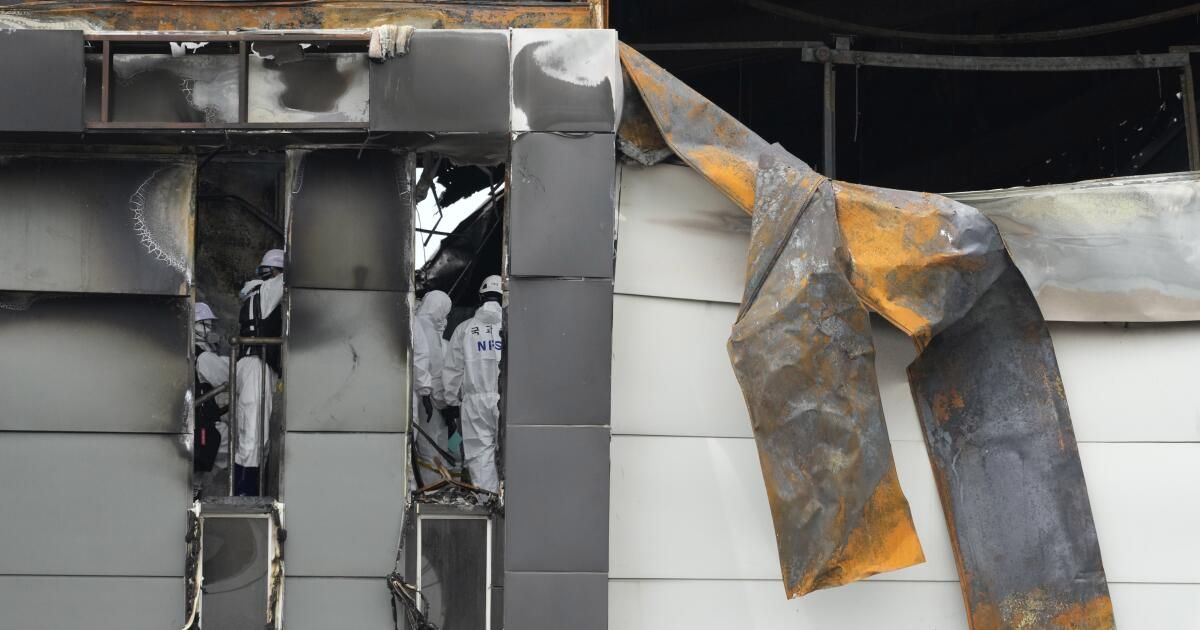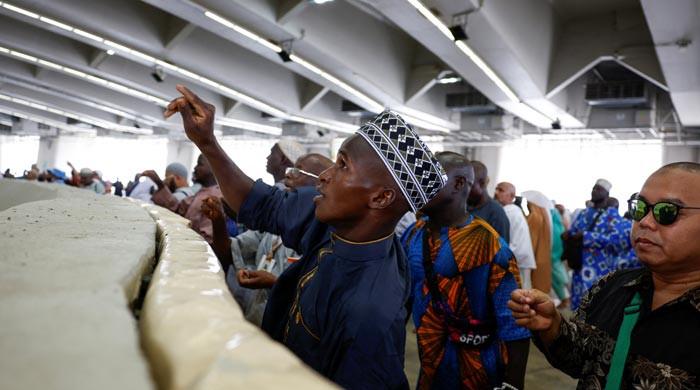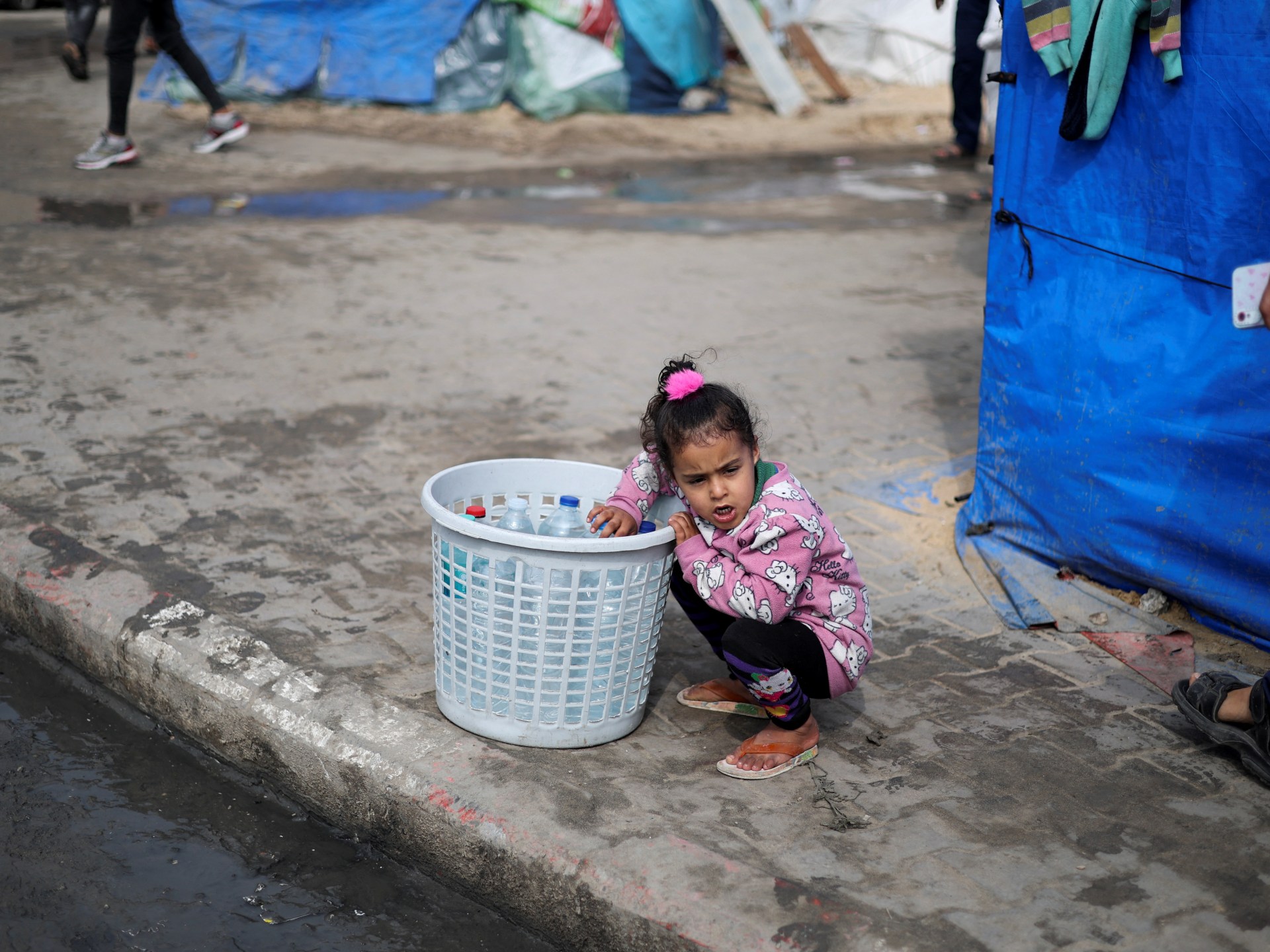The workers never stood a chance.
Security video from a lithium battery factory south of Seoul in the city of Hwaseong on Monday morning shows a cloud of smoke as one worker struggles to move battery boxes and another sprays a fire extinguisher in vain.
The cases begin to explode in a yellow flash before the camera cuts out.
As explosions rocked the street, firefighters on the scene could only watch on in what became the deadliest chemical factory fire in South Korea's history, killing 23 people.
That figure was also notable because 18 of the victims were foreigners (17 from China and one from Laos), highlighting the country's growing reliance on migrant workers and the harsh working conditions they sometimes face.
Firefighters work at the scene of the burned factory.
(Hong Ki-won / Associated Press)
“It has exposed the reality of South Korea's quest for cheap labor,” said Choi Jung-kyu, a labor activist and lawyer who helps families of the dead.
Years of low birth rates have led to severe labor shortages in the manufacturing sector, increasingly shunned by South Koreans due to their low wages and harsh working conditions. Workers from China and Southeast Asia are taking their place.
In South Korea there are currently about 426,000 temporary migrant workers, of whom about 165,000 are ethnic Koreans from China or Central Asia, who can apply for special visas to live and work in the country. The country is on track to add at least 165,000 more this year.
Migrants typically find work in small and medium-sized manufacturing companies, where worker advocates say occupational safety standards are lax compared with larger workplaces, making accidents common.
In South Korea, foreigners made up about 9% of the manufacturing workforce in 2021, but accounted for 18% of its 184 accidental deaths, The Times reported last year.
The workers who died this week had been sent to Aricell, a supplier of lithium batteries to the South Korean military, through a temporary labor agency.
The company has flouted safety regulations in the past, regional fire chief Jo Seon-ho said at a news conference on Tuesday.
In 2019 it was fined for storing 23 times the permitted amount of lithium. A year later, she was ordered to repair dysfunctional fire safety systems.
In a routine safety inspection last March, the local fire department noted that the building that caught fire this week posed a potential fire hazard. And even though a faulty battery had caught fire just two days before the fire, the company had not notified the fire department.
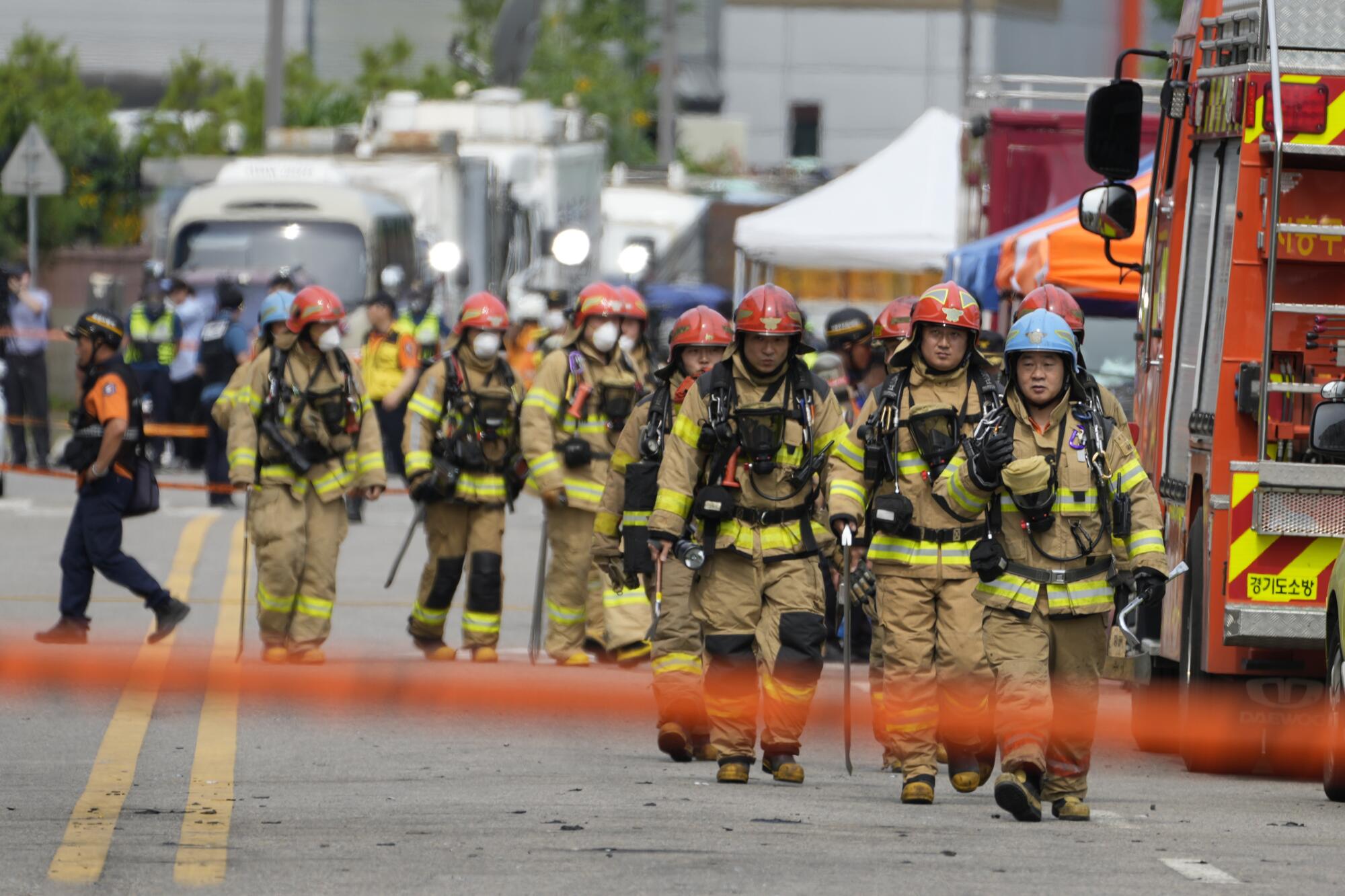
Firefighters arrive at the factory site on Tuesday.
(Lee Jin-man / Associated Press)
By the time firefighters were able to enter the building, five hours after the fire started, the victims' bodies were so badly burned that it took four days to identify them with DNA testing.
They were discovered on the second floor near a wall away from the exit. Authorities believe they were accidentally trapped inside in the chaos of the fire.
“It appears that the workers were victims of the toxic fumes that spread in a very short time,” Jo said. “Most of them were day laborers, so we think the fact that they were not familiar with the design of the building also played a role.”
On Thursday, police raided the offices of Aricell and the temporary agency that provided the workers, arresting five people in an investigation focused on whether the company violated industrial safety laws.
Park Soon-kwan, the company's chief executive, apologized for the incident but denied accusations that the company neglected worker safety.
“We routinely conduct safety training and receive regular safety inspections,” Park said at a press conference at the factory on Tuesday. “We have fire warning systems, fire extinguishers and evacuation manuals to help people find exits easily.”
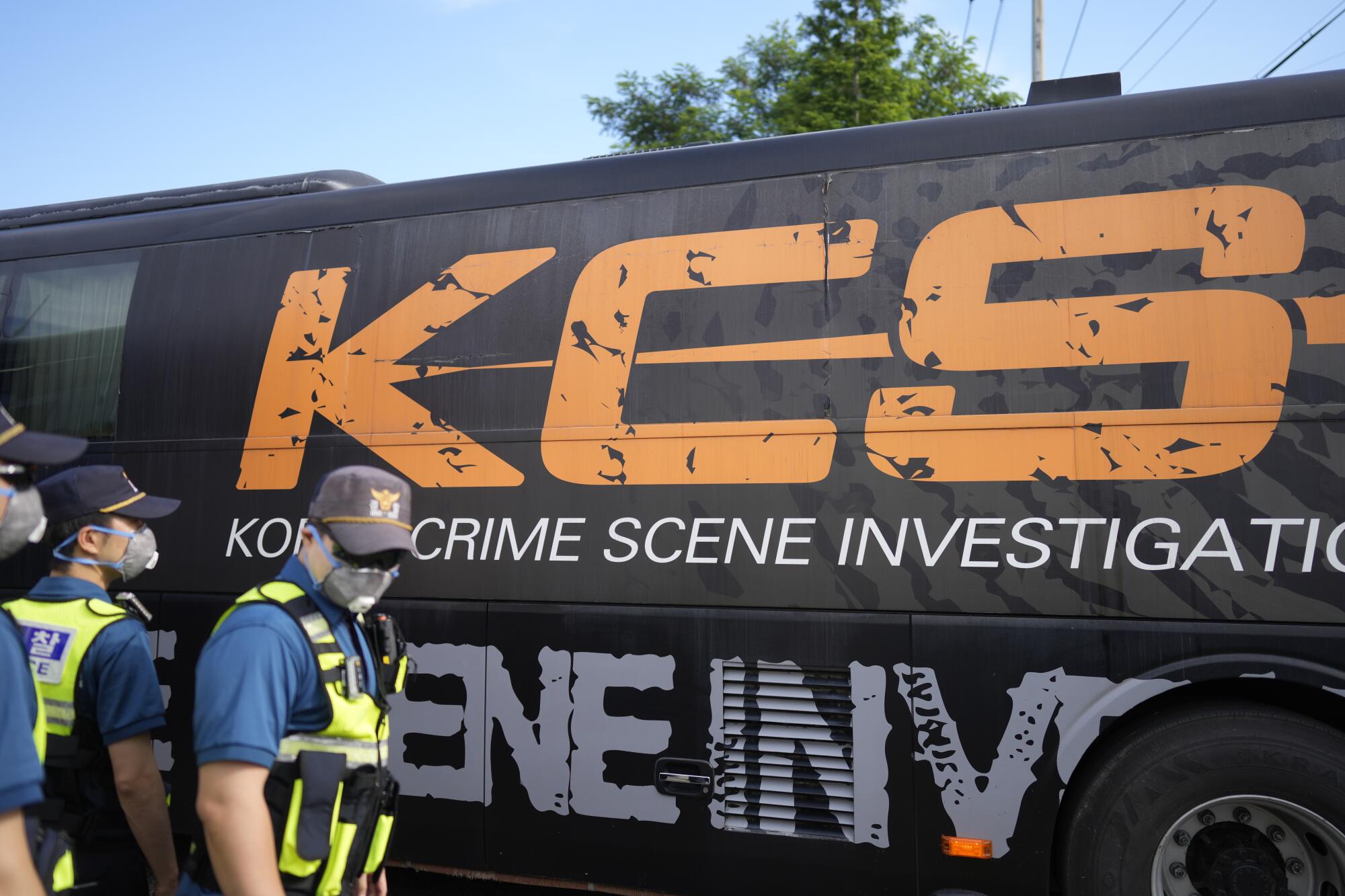
A South Korean crime scene investigation team vehicle arrives on Tuesday.
(Lee Jin-man / Associated Press)
Choi, the labor lawyer, questioned how airtight the company's safety training might have been.
“Would what they call routine safety training have been of any use to the day laborers?” he said. “It's a system that is fundamentally flawed because it's not like they can redo all the safety training every time someone new comes in.”
Lithium batteries can ignite due to moisture, external impacts or faulty manufacturing, making fires an ever-present threat that manufacturers must be prepared for, experts say.
Aricell's product — a non-rechargeable military-grade battery — was particularly dangerous, according to Park Chul-wan, a battery expert at Seojeong University.
The batteries, which are used in portable military devices such as walkie-talkies, contain a chemical called thionyl chloride, which is preferred for its high energy density. But if vaporized in fire, the chemical is highly corrosive to the eyes, skin and throat.
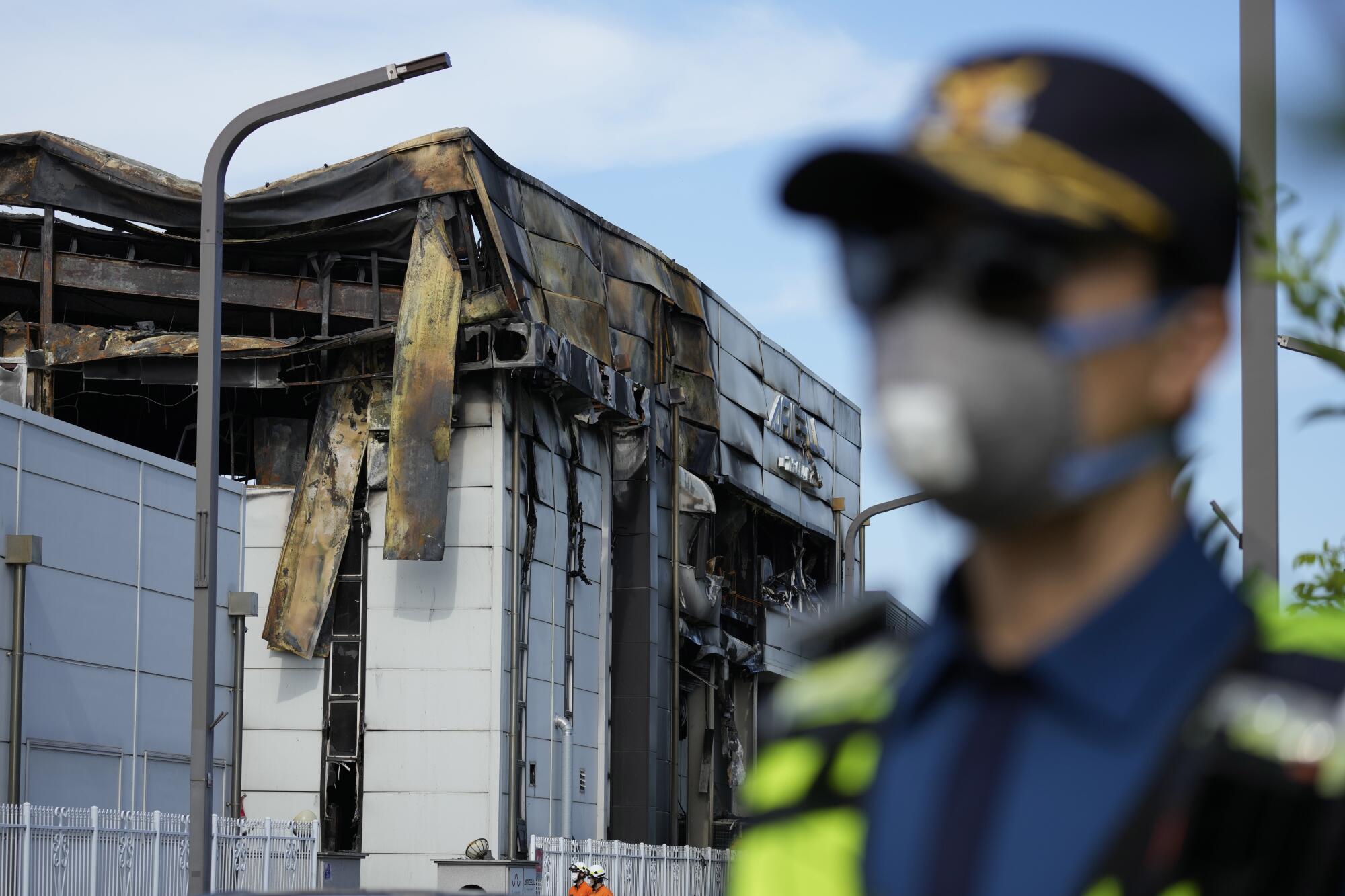
A police officer stands outside the plant on Tuesday.
(Lee Jin-man / Associated Press)
“This makes the time to reach safety incredibly short,” Park said. “The moment the room fills with this vapor, anyone would instantly panic and fall to the ground.”
Lithium battery fires are extremely difficult to put out. Because temperatures can quickly reach over 2,000 degrees, standard fire extinguishers or even water from sprinklers will not work.
The best hope, according to Park, is an overwhelmingly large volume of water or a specialized fire extinguisher rated for metal fires.
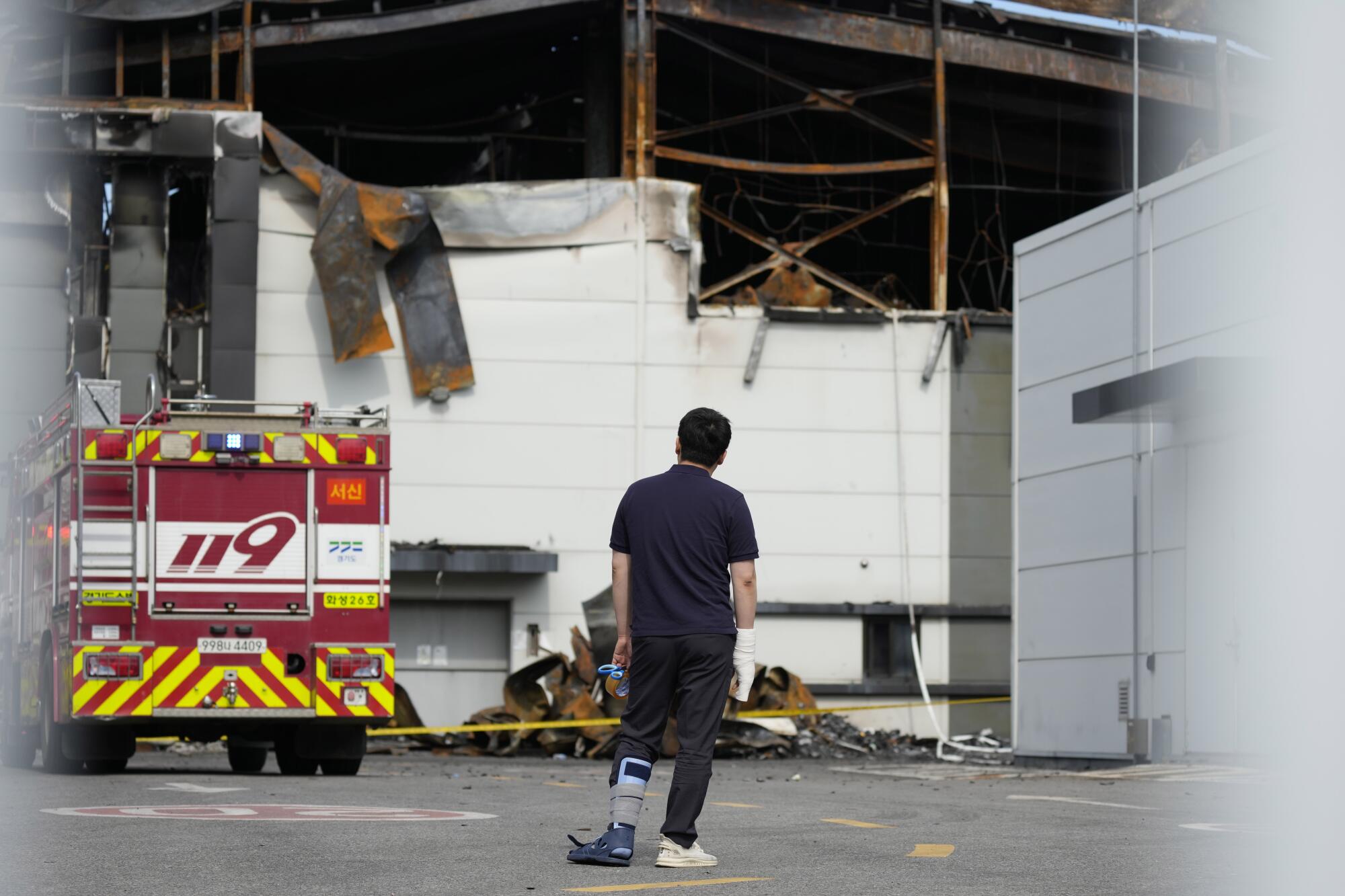
A man with a bandage on his right hand and a cast on his left leg looks at a burned building Tuesday.
(Lee Jin-man / Associated Press)
But in South Korea, the law does not require the provision of these special fire extinguishers. And although the company has said that it had several of these fire extinguishers on the premises, they were not the ones that the workers had on hand.
Outside the burning factory, a relative of one of the migrants who died pushed his way through fire trucks until he was stopped by a group of journalists.
“What is this?” he said. “Safety measures should have been taken. We foreigners are forced to do the most vilely low jobs. How can this be possible?”

